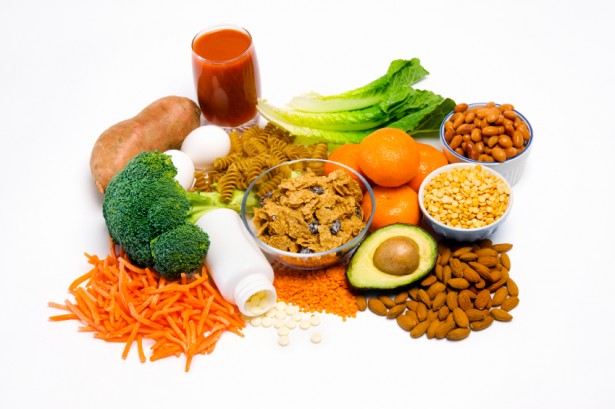Child (foetus): Momma!!
Mom: Yes dear!!
Child: I am scared, if I’ll be mentally defective???
Mom: Don’t worry my child you’ll be a born genius
Child: Is it!! But how Momma??
Mom: I’m nourishing you with a magic nutriment for your brain development
Child: Yippee!! Thank u Momma…
Alright curious about the conversation??
Well, you might have heard about childbirths with neural tube defects like spina bifida (spinal defect) and anencephaly (defect in brain and skull). These may be many times due to insufficient vitamin intake by mother. There are certain brain facts which everyone should get it right.
One such very important vitamin which establishes a healthy relationship between a mom and a child is “Folic acid”. Let’s have a look at it….Folic acid is a form of water-soluble vitamin B9. The human body cannot synthesize folic acid. So, you have to consume it every day through your diet to meet the adequate amounts of folic acid. The form of folic acid occurring naturally in food is called FOLATE. Food for brain is crucial for its development and especially in the child’s growing years.
How does it help the mankind?
- Folic acid together with vitamin B12 is necessary to form red blood cells.
- It helps in the synthesis and repair of RNA and DNA which are very essential even for the birth of a human cell; they determine our genes.
- It aids in the rapid cell division and growth.
- It is essential for a pregnant woman to prevent major neural birth defects in her baby.
- Even a woman who is pregnant can prevent defects in her child if she takes folic acid rich diet.
- It is a brain booster.
Dutch Researches suggested that folic acid supplementation increases brain power of processing speed and memory, domains that are known to decline with age”.
Can’t just stop knowing the uses?
So, now you can have a glance at the sources….
Dark green vegetables are good sources of folic acid.
As folic acid is water soluble vitamin, over cooking may reduce the levels of it in the food.
To be more specific folic acid is rich in the following sources:
|
|
|
|
|
|
|
|
|
|
|
|
|
|
|
|
|
|
|
|
How much of folic acid do you need?
Dietary lack of folate leads to folate deficiency. So, folic acid is not only essential for pregnant women but also a need for every human being.
Recommended daily intake of folic acid in micrograms (μg):
Adults and children over 11yrs 200 μg
Any woman considering pregnancy 200 μg + 400 μg supplements
Any pregnant woman 300 μg + 400 μg supplements during first 12weeks of pregnancy.
Lactating woman 270μg
*Some women need to take 5mg/d of folic acid from preconception to 12 weeks of pregnancy. This is applicable in case you have had a pregnancy previously affected by neural tube defects or if you have diabetes – consult your General Physician.
I guess one more question might be troubling you..
What if I don’t get enough of it?
Folic acid deficiency results in anemia and birth defects.
The signs and symptoms of folic acid deficiency disease include:
- Fatigue
- Tiredness
- Feeling weak
- Diarrhea
- Headache,
- heart palpitations
- Forgetfulness
- Behavioral disorders
- Being irritable, easy irritated
- Loss of appetite
- Weight loss
Patients with folic acid deficiency anemia are given folic acid tablets to be taken daily.
Other risks linked to folic acid deficiency are:
- A higher risk of second heart attacks.
- A higher risk of strokes.
A study in the medical journal suggested that adding folic acid to the diet significantly reduces the risk of stroke by lowering homocysteine levels that is an emerging factor for cardiovascular disease.
- A higher risk of some cancers, such as stomach cancer
- A considerable drop in male sperm count, male fertility. “Folic acid may improve men’s chances of fathering a child.”
- A higher risk of developing clinical depression
- Possible memory and mental agility problems
- Perhaps a higher risk of developing allergic diseases
- A higher long-term risk of lower bone density (hypothesis)
Research is going on the above-mentioned risk factors.
I hope you are clever enough and by now you know how to avoid all these problems. Make sure you maintain adequate levels of folate or folic acid in your body either through your balanced diet or folic acid supplements.
Get wealthy by healthy food!
Share this information with your friends and family members and make them check whether their regular diet meets the daily requirement of folic acid. You can share this by simply clicking the below links…


